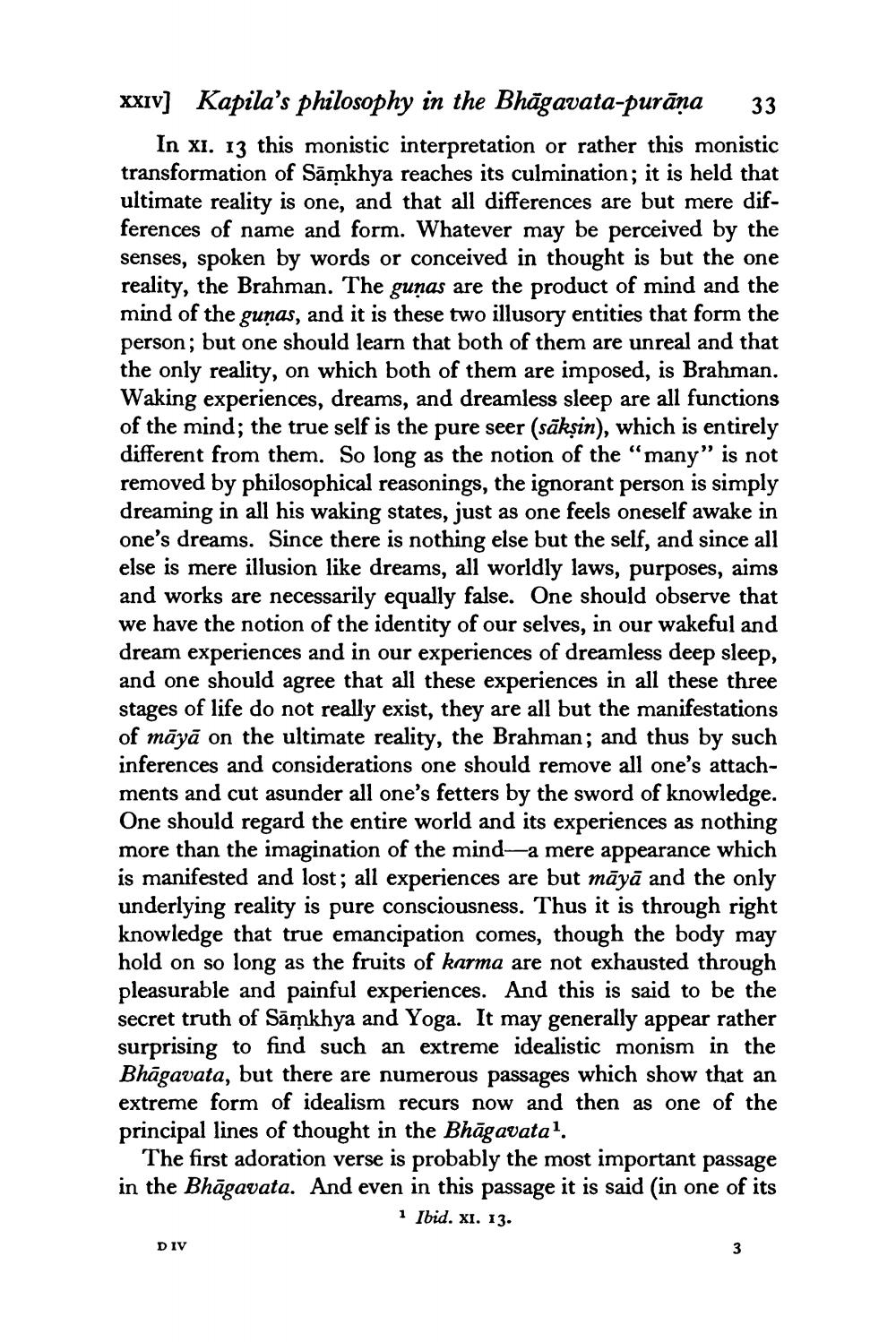________________
XXIV] Kapila's philosophy in the Bhāgavata-purāņa 33
In xi. 13 this monistic interpretation or rather this monistic transformation of Sāmkhya reaches its culmination; it is held that ultimate reality is one, and that all differences are but mere differences of name and form. Whatever may be perceived by the senses, spoken by words or conceived in thought is but the one reality, the Brahman. The gunas are the product of mind and the mind of the guņas, and it is these two illusory entities that form the person; but one should learn that both of them are unreal and that the only reality, on which both of them are imposed, is Brahman. Waking experiences, dreams, and dreamless sleep are all functions of the mind; the true self is the pure seer (sāksin), which is entirely different from them. So long as the notion of the "many" is not removed by philosophical reasonings, the ignorant person is simply dreaming in all his waking states, just as one feels oneself awake in one's dreams. Since there is nothing else but the self, and since all else is mere illusion like dreams, all worldly laws, purposes, aims and works are necessarily equally false. One should observe that we have the notion of the identity of our selves, in our wakeful and dream experiences and in our experiences of dreamless deep sleep, and one should agree that all these experiences in all these three stages of life do not really exist, they are all but the manifestations of māyā on the ultimate reality, the Brahman; and thus by such inferences and considerations one should remove all one's attachments and cut asunder all one's fetters by the sword of knowledge. One should regard the entire world and its experiences as nothing more than the imagination of the mind-a mere appearance which is manifested and lost; all experiences are but māyā and the only underlying reality is pure consciousness. Thus it is through right knowledge that true emancipation comes, though the body may hold on so long as the fruits of karma are not exhausted through pleasurable and painful experiences. And this is said to be the secret truth of Sāmkhya and Yoga. It may generally appear rather surprising to find such an extreme idealistic monism in the Bhāgavata, but there are numerous passages which show that an extreme form of idealism recurs now and then as one of the principal lines of thought in the Bhāgavatal
The first adoration verse is probably the most important passage in the Bhāgavata. And even in this passage it is said in one of its
1 Ibid. XI. 13.
DIV




